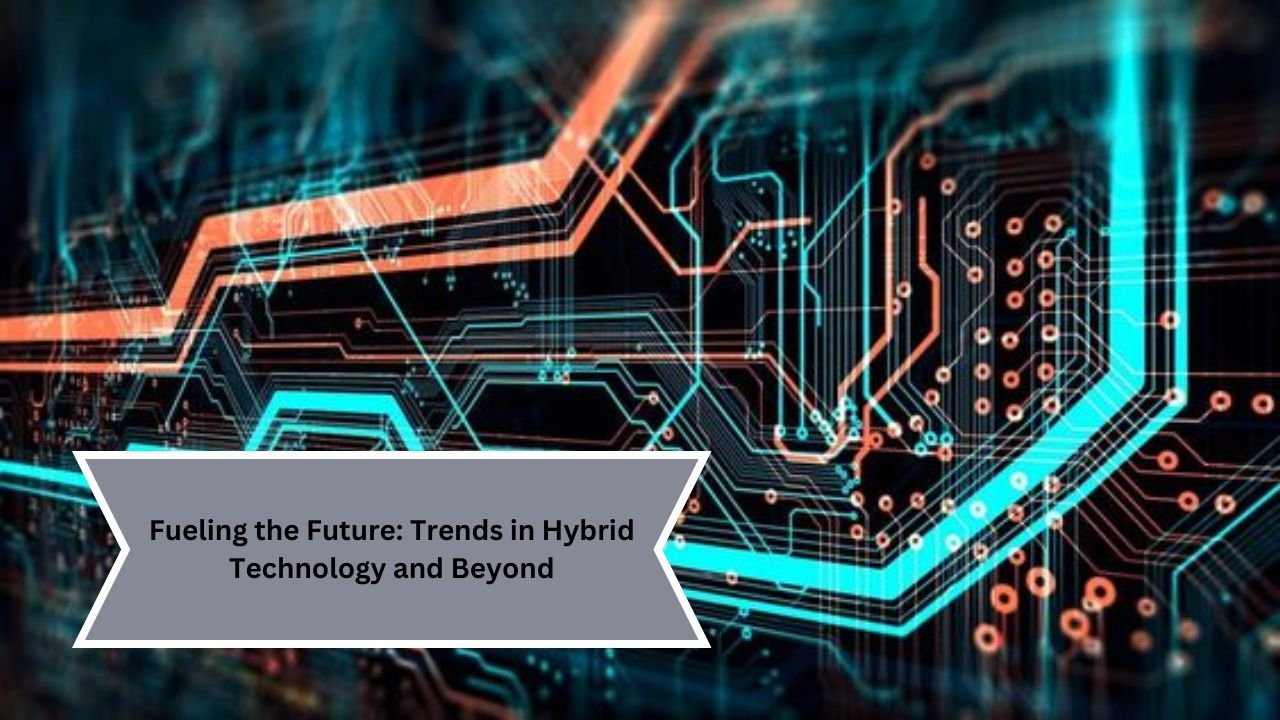As the world grapples with the urgent need for sustainable energy solutions, hybrid technology has emerged as a pivotal player in the transition to cleaner transportation. Hybrid vehicles, which combine conventional internal combustion engines with electric propulsion systems, have gained significant traction over the past few decades. However, as we look towards the future, the landscape of hybrid technology is evolving, influenced by advancements in battery technology, shifts in consumer preferences, and regulatory pressures. This article explores current trends in hybrid technology and examines what lies beyond, shaping the future of mobility.
The Evolution of Hybrid Technology
Hybrid vehicles were first introduced in the late 1990s, with the Toyota Prius leading the charge. Initially, hybrids were seen as a compromise between fuel efficiency and traditional gasoline-powered vehicles. However, advancements in technology have significantly improved the performance, efficiency, and appeal of hybrids. Today’s hybrids can deliver impressive mileage, reduced emissions, and enhanced driving experiences, making them increasingly attractive to consumers.
Types of Hybrid Vehicles
There are several types of hybrid vehicles currently available:
- Mild Hybrids: These vehicles use a small electric motor to assist the internal combustion engine, improving fuel efficiency without the capability to drive solely on electric power.
- Full Hybrids: Capable of operating on either the electric motor or the gasoline engine, full hybrids offer greater flexibility and can drive short distances on electric power alone.
- Plug-in Hybrids (PHEVs): These vehicles can be charged via an external power source, allowing for longer electric-only driving ranges. PHEVs represent a compelling option for consumers looking to reduce fuel costs while maintaining the convenience of a gasoline engine.
Current Trends in Hybrid Technology
1. Advancements in Battery Technology
One of the most significant trends in hybrid technology is the ongoing development of battery systems. Lithium-ion batteries have become the standard, but researchers are now exploring alternative chemistries, such as solid-state batteries, which promise higher energy densities and faster charging times. These advancements not only improve the performance of hybrid vehicles but also enhance their safety and longevity.
2. Integration of Artificial Intelligence (AI)
AI is playing an increasingly vital role in hybrid technology. Advanced algorithms can optimize energy management systems, ensuring that the vehicle uses the most efficient power source based on driving conditions. Additionally, AI can enhance driver assistance features, making hybrids safer and more user-friendly.
3. Sustainability and Recycling Initiatives
As the demand for hybrids grows, so does the focus on sustainability throughout the entire lifecycle of the vehicle. Manufacturers are implementing recycling programs for batteries and striving to source materials ethically. The development of circular economy practices in the automotive industry is crucial for minimizing environmental impact and promoting sustainability.
4. Government Regulations and Incentives
Governments worldwide are recognizing the importance of hybrid technology in reducing emissions and promoting cleaner air. Many countries offer incentives for consumers to purchase hybrid vehicles, such as tax credits and rebates. Stricter emissions regulations are also encouraging manufacturers to invest in hybrid technology as part of their strategies to meet environmental standards.
5. Consumer Preferences Shifting Towards Electrification
Consumer interest in hybrid vehicles is steadily rising, driven by an increasing awareness of environmental issues and the desire for cost-effective solutions. Many consumers view hybrids as a practical stepping stone towards fully electric vehicles. As automakers expand their hybrid offerings and improve technology, the appeal of these vehicles is likely to continue growing.
The Road Ahead: Hybrid Technology and Beyond
While hybrid vehicles are currently at the forefront of sustainable transportation, the automotive landscape is shifting rapidly. The following trends will shape the future of mobility:
1. The Rise of Fully Electric Vehicles (EVs)
The ultimate goal of the automotive industry is to transition to fully electric vehicles. While hybrids serve as a bridge to this future, significant investments in charging infrastructure, battery technology, and renewable energy sources will be necessary to support widespread EV adoption. Automakers are increasingly pivoting their strategies towards electrification, with many planning to phase out internal combustion engines altogether.
2. Hydrogen Fuel Cell Technology
Hydrogen fuel cells represent another promising avenue for sustainable transportation. Although not hybrids in the traditional sense, fuel cell vehicles (FCVs) operate similarly by using hydrogen to generate electricity for propulsion. This technology has the potential to complement battery-electric vehicles, especially for long-haul transportation where charging infrastructure is still developing.
3. Connected and Autonomous Vehicles
The integration of connected technologies and automation is revolutionizing the automotive industry. As vehicles become smarter and more interconnected, hybrid technology will evolve to include features like vehicle-to-grid (V2G) capabilities, enabling cars to act as energy storage units that can supply power back to the grid. Additionally, autonomous driving technology could enhance the efficiency of hybrid systems by optimizing energy use based on real-time traffic data.
4. Shared Mobility Solutions
The rise of shared mobility services, such as ride-sharing and car-sharing, presents new opportunities for hybrid technology. By incorporating hybrids into fleets, companies can reduce emissions while providing consumers with access to cleaner transportation options. This trend aligns with urbanization and the growing demand for convenient, cost-effective transportation solutions.
Conclusion
Hybrid technology is not just a temporary solution; it is an integral part of the transition to sustainable transportation. As advancements in battery technology, AI integration, and sustainability initiatives continue to evolve, hybrids will play a vital role in the automotive landscape. While the ultimate goal is a future dominated by electric and hydrogen-powered vehicles, hybrids will remain relevant as consumers navigate their way towards cleaner alternatives. The path to a sustainable future is paved with innovation, collaboration, and a commitment to reducing our carbon footprint. The future of mobility is bright, and hybrid technology is fueling the journey ahead.
| HOME | CLICK HERE |
| AUTOMOBILE NEWS | CLICK HERE |

